Ahoy, my fellow backpackers! As you all know, I am seriously passionate about budget travel. So much so that I decided to dedicate the last decade of my life to it, and, of course, built this whole entire website to tell you all about it!
However, I will confess that sometimes budget backpacking can feel a bit like cheating – I mean, traveling for cheap in India is pretty easy when you consider that $1 = 82 rupees, and that 50 rupees still buys you a huge plate of Thaili.
And of course, advising cash strapped travelers to head to budget backpacking destinations like Thailand and Vietnam is all good and well except that some of you would prefer to visit Norway, Japan or Australia…
And shit’s expensive over there! Especially for us broke backpackers.
So I’m going to do my damnest to confront the challenge of how to travel cheaply in expensive countries. I’ve been scribbling away on a whiteboard all morning and now it’s time…
After 15 years on the road, today I will share all the tips, tricks and hacks that will show you how to travel the world on the cheap, even when visiting expensive countries.
Mastering the Art of Budgeting
Traveling cheap in expensive countries starts with one raw, essential skill – budgeting…
But friends, although the mere mention of the “B” word may send shivers down your spine, rest assured that frugal can still be fun!
Think of budgeting as a challenge to be met head-on and treat taking charge of your own financial destiny as a game. Also, let’s be honest, learning to master the art of budgeting is a skill which will serve you well in life…
Set a Budget
I can’t stress enough how important it is to have a solid budget in place before you even think about booking that flight, jumping on that bus or sticking out that thumb of yours.
Start by determining your total budget for the trip, deduct the cost of things like flights and visas, and then break down whatever is left into daily spending limits.
There is no way that you will be able to stick religiously to this (some days are more expensive than others) but this exercise will help you stay on track and avoid any unpleasant surprises.
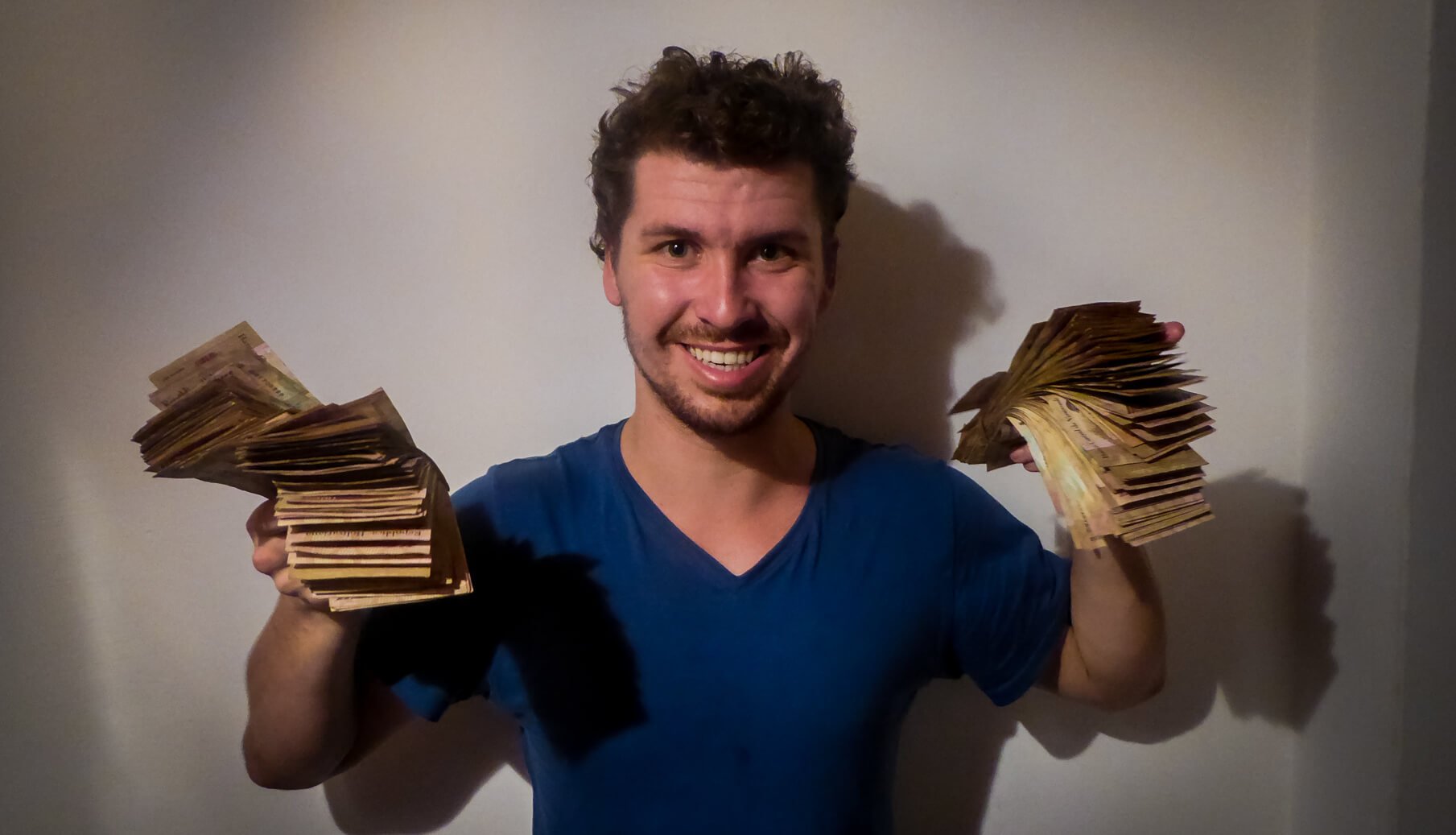
But how do you create a budget that works for you? Well, for starters, you need to prioritize and figure out what’s most important to you.
Are you a foodie eager to sample the very best restaurants that your destination has to offer? Or do you live for pocket-punishing adrenaline-pumping activities like skydiving?
Decide what you’re willing to spend more on, where you can save, and plan your trip around that. Remember, budgeting isn’t about depriving yourself (money is for spending, after all) but, it’s about finding a healthy balance.
Stick to Your Daily Spending Limit
Discipline, my friends, is what separates us warriors from the mere-mortals. Seriously, anybody can doodle a budget onto the back of an envelope or punch it into a spreadsheet…
But sticking to it is not quite so easy.
Picture this. It’s Day 1. You hit your daily spending limit after checking out that world-class museum and treating yourself to some delicious street scran.
But then evening comes and your hostel announces a pub crawl. The cute girl from the opposite dorm has dressed up for the occasion and is making eyes at you…
What are you gonna do? Stay home and leaf through the hostel’s mandatory well-worn copy of “Shantaram” or borrow from tomorrow’s budget in the hope of maybe making merry before making out?

Of course, in order to stick to your budget you also need to find ways to stretch your funds. This means opting for a dorm bed instead of a private room, choosing which museums you really want to see, picking wisely when to eat out and get a few drinks and when to stay put…
Reconcile yourself with the idea of spending quite a few evenings entertaining yourself by reading, journaling, painting, or working on a business idea.
There’s honestly so much one can do introspectively without money, that it is totally possible to travel on an extreme budget. Get yourself a pen and paper, and work on that sweet imagination of yours. Rock up somewhere cool (and free) like a park and hang out there, journaling up a storm…
Track Your Expenses
You’ve got your budget, you’ve set a daily limit and your resolve is steely – now, it’s time to track your expenses as you go in real time.
These days there are loads of budgeting apps and tools at your fingertips. Personally, I use Tricount – it also allows you to invite other people to budget so it’s ideal for couples or groups who are splitting travel costs.

Do You Want to Travel FOREVER??
Pop your email in below to get a FREE copy of ‘How to Travel the World on $10 a Day!’.
Tapping into Local Networks
One of the best ways to save money while traveling is by tapping into local networks. By getting to know the locals, you can gain access to a mine of information about cheap places to eat, sleep and drink.
And you may also bag yourself some free rides, meals or even beds for the night!
The most effective way to do this is simply to talk to people. The moment you get on the ground, get talking to people and I promise a whole world of cost savings (and amazing experiences) will open up before you!
But if you are not great at talking to strange people in strange lands, then there are other ways to tap into local networks too…
Couchsurfing
Upon its launch, Couchsurfing was an absolute game-changer for budget travelers, offering not only free accommodation but also the chance to forge genuine connections with local hosts.
Couchsurfing hosts open up their homes to weary backpackers, providing a snug spot to rest heads on, and often sharing their insider tips on how to experience their city, like a local, on the cheap.
It’s a heartwarming exchange of culture, friendship, and goodwill that will leave you with memories to last a lifetime. I had some amazing times couchsurfing over the years….
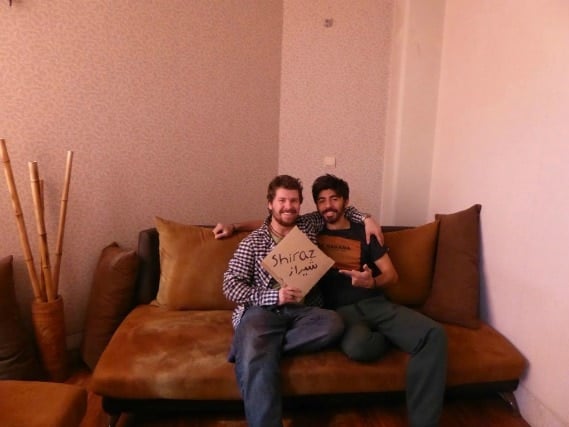
However, the rise of Airbnb severely damaged Couchsurfing. Once hosts realized they could make a few quid from their couches and spare rooms, the green got the better of many of them and the community very much withered.
For example, when I visited California there was zero chance of me finding a host in San Francisco, but quite a few over in Berkeley and I managed to find a guy in Chico who let me stay as long as I wanted.
Since 2020, there is a subscription you have to pay. Coming short under $15 a year, it’s still worth every cent, as you’ll “get back” your investment by staying a couple of nights with a host.
House sitting is another fantastic option for budget-savvy explorers. By taking care of someone’s home (and sometimes their pets) while they’re away, you can score some amazing free accommodation. Check out websites like TrustedHousesitters and MindMyHouse to get started.
Meetup
Meetup is a cool platform for discovering local events and activities that align with your own personal interests. Basically, you just log into the app, pick your area and see what kind of meet ups are happening.
Facebook Groups
The Facebook platform (justly) gets a bad rap, but nevertheless, Facebook groups can prove to be a treasure trove of advice, tips, and camaraderie for those seeking to conquer expensive countries without busting up the bank.
There are regional backpacker groups, city groups and country-specific forums. These groups are only as good as their members and so the quality varies from one destination to the next.
Work or Volunteer as You Travel
Another fantastic and rewarding way to keep your travel expenses down is by working or volunteering on the road. Not only will this help you save money (or even earn some), but it can also lead to some seriously bloody unforgettable experiences and lasting friendships.
I have personally saved travel costs by tending goats in Israel, digging ditches in India (I don’t THINK they were for dead bodies) and several members of our team bagged themselves roofs over their heads and meals in their bellies by putting up with children. Result!
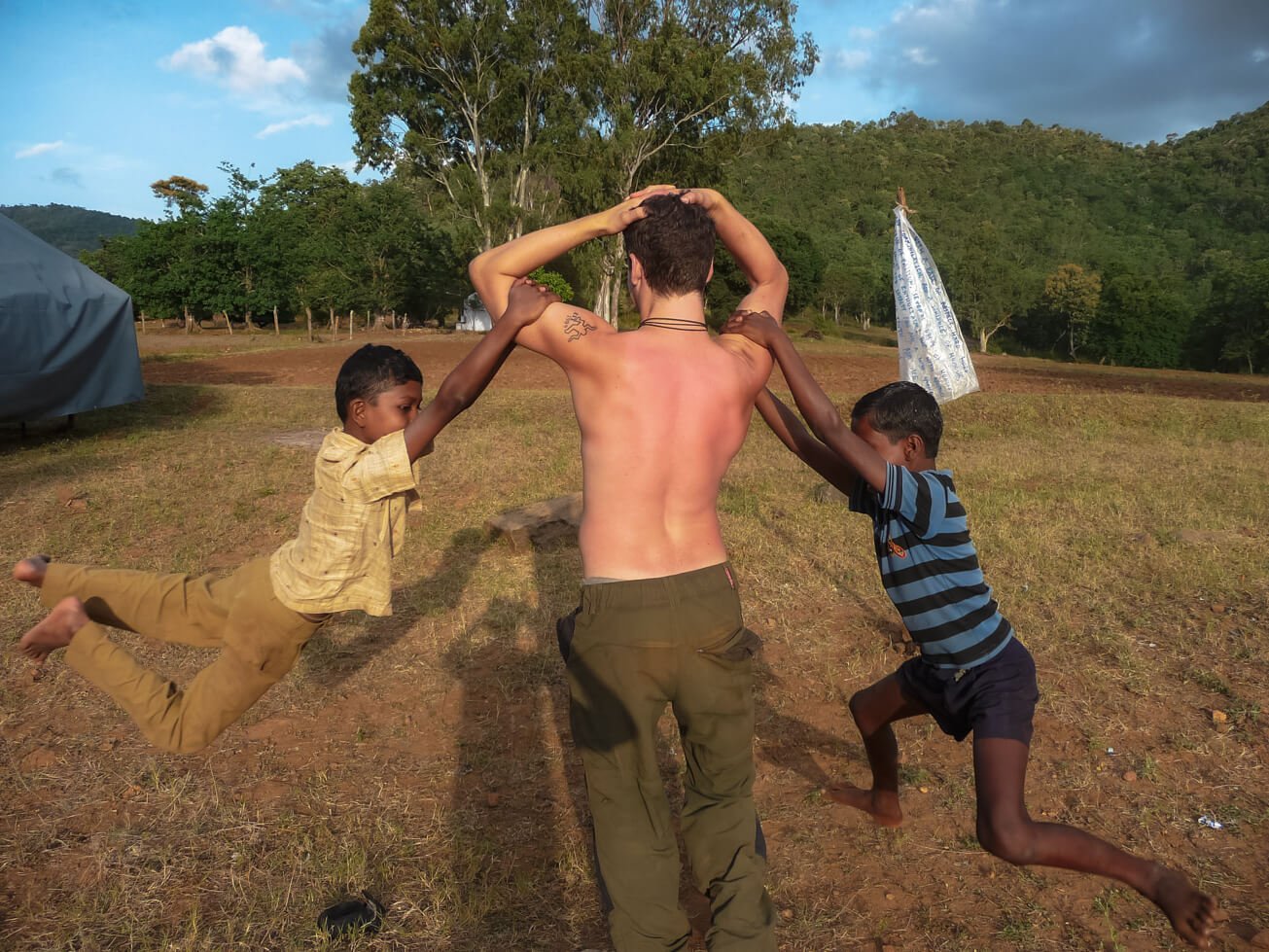
Casual gigs at hostels are the obvious place to start. Many hostels offer work-for-accommodation deals, where you can exchange a few hours of work each day for a free bed. This is an excellent way to save on lodging. Just note that the work can be tough – changing 50 beds is seriously tiring…
Worldpackers and Workaway
You can find volunteer gigs on platforms like Worldpackers and Workaway, where you can volunteer your skills in exchange for accommodation and, many times, a couple of meals.
These opportunities range from teaching English and working on organic farms to helping with social projects and eco-tourism initiatives. Not only will you save money, but you’ll also gain unique experiences and make a positive impact on the communities you visit.
Workaway is perhaps the biggest platform out there, but that may also come with its own drawbacks — like having too much competition applying for the same gigs.
The Broke Backpacker stands strong by Worldpackers because, not only are they easy and intuitive to use, they also take safety pretty seriously. We also believe in equal opportunity tho, so you have two options:
Seasonal Jobs
Seasonal jobs can be another boon for the budget traveler too. From working on farms during harvest season (dangerously fun in vineyards…) to helping out at ski resorts in the winter (the tips can be crazy…), these opportunities offer good chances to earn some local money while experiencing the local culture.
Freelancing
If you’ve got skills that can be employed remotely, then consider online freelancing. Platforms like Upwork and Fiverr connect freelancers directly with clients in need of various services, from writing and graphic design to marketing and programming. This allows you to work from anywhere, helping to keep your budget afloat while you explore the world.
Note that many of these jobs are not all that well paid, that you will probably be starting at the bottom and that it can take years to build a good rep and client base.
But it is a real potential life changer and I highly recommend investing all the spare time you have (whilst not spending money in the evenings) to hone some skills that allow you to make money on the road.
Getting Around Without Breaking the Bank
Transport can be a major travel expense, especially when you visit more expensive countries. But there are still plenty of ways to get around without blowing your budget, you may just need to be a bit plan-orientated and patient.
Firstly, it is important to plan your route carefully. If you have an itinerary of different cities or sites you want to visit, make sure you follow it in a logical, geographical order to save yourself from having to circle back and forth. In many cases, booking transport ahead of time can also result in some real savings.
Hitchhiking
Hitchhiking is perhaps the very epitome of budget travel – it’s free, it’s spontaneous, and best of all full of surprises.
Granted, hitchhiking may not be for everyone, but if you’re up for a bit of adventure and don’t mind putting your trust in the kindness of strangers, it can be a seriously MDMA-zing way to travel.
It does take a bit of practice to get comfortable and get good at hitchhiking but once you master it, it’s a life skill.
Not only will you save loads of cash from your travel budget, but you’ll also meet local people and get to spend some quality time in their presence. Just be sure to follow some basic safety guidelines and trust your instincts.
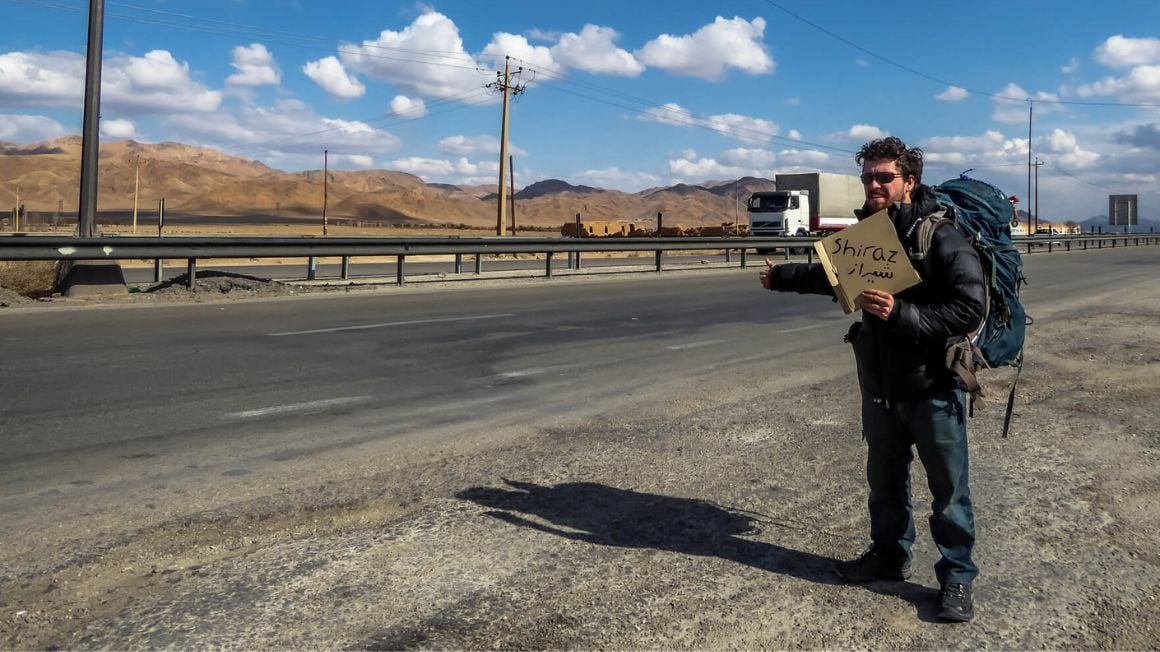
Local Transport
When it comes to budget transportation, going local is always the way to go. Buses, trains, and shared taxis are often a fraction of the cost of the tourist-focused options, and besides that, they offer an authentic glimpse into the daily lives of the people you’re visiting. In less developed countries, using “local” transport often means sacrificing comfort but that is not really the case in more expensive countries.
Sometimes using local transport can prove challenging or even daunting but remember that people will try to help you and in the end, you will always get to where you need to be.
Rent a Bike
Renting a bike is an amazing way to explore your area without breaking the bank. Not only does it offer the freedom and flexibility to venture off the beaten path, but it’s also an eco-friendly and healthy way to travel.
Few travelers are willing (or able) to do any long-distance bikepacking and so it may well not be practical for you to cross the entirety of the US by bicycle! But hey, some folks do it…
Personally, I’m all about hiring or buying a motorbike and driving it around for months at a time. This can actually work out pretty cheap as well, especially if it gives you access to good camping spots and you can save money on accommodation too.
Eating on a Shoestring Budget
Traveling in expensive countries often means paying more for food. For example, in the UK these days it is incredibly rare to find a restaurant dish for under £10 ($13) and even supermarket prices are spiking across the West.
Nonetheless, you don’t have to go hungry or eat instant noodles every day. With a bit of creativity, there are some ways you can still eat well.
Leveling up to a top-tier backpacker will probably have you carrying around a portable stove and cooking your own food. This is especially true if you decide to follow the route of camping and start traveling around with a tent.
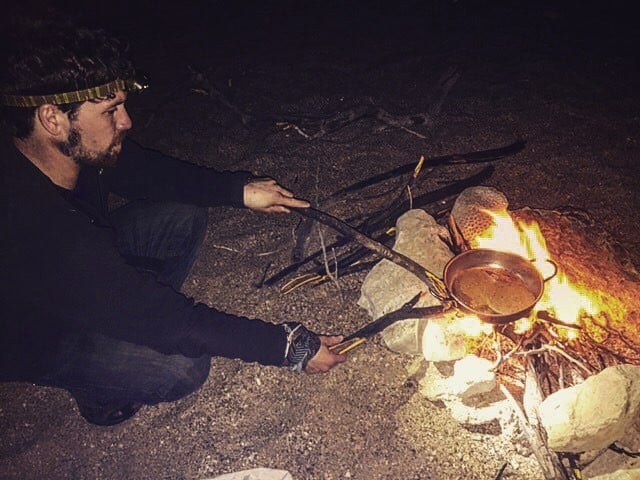
Dumpster Diving
Supermarkets throw out a shameful amount of food and so dumpster diving is in my view a perfectly noble pursuit. And before you dismiss this idea, know that many travelers have saved a ton of money (and eaten well) by rummaging through supermarket and restaurant dumpsters.
It might not be for everyone, but if you can swallow your ego, you might be surprised at the treasures you’ll find – one man’s trash is another man’s treasure right?

Just remember to wear thick layers, bring a torch, be respectful, and always leave the area as clean as you found it. Even though it may not be glamorous, dumpster diving is seriously a next-level backpacker hack.
Cook at The Hostel Kitchen
Most hostels have perfectly good kitchens and yet relatively few travelers actually ever use them all that much. You can easily save $10 – $20 per day by buying some simple ingredients in a local market and cooking them yourself back at the hostel.
Some hostels also have “free food shelves” meaning you can sometimes cook a feast for free.
Oh, and my personal hack here is to bring a bunch of herbs and spices from home, pop them in your backpack and bust them out when the time comes to cook. That way you can add some flavor even to the most humble of meals.
Eat On The Street
In my view, the best food in the world is street food and to boot, street food is the ultimate budget dining experience
It is true that the Western world does not have the same street food culture that you find in Asia but in expensive destinations like Hong Kong, the street BBQs still offer a real bargain banquet – especially if you stick mostly to the veg offerings.

Back in the West, you can still find our answer to street food at hole-in-the-wall kiosks and food trucks (the trucks selling Dirham Kebabs across Germany are a particularly delicious example).
However, widespread gentrification has pretty much comprehensively ensured that the fare is not especially cheap these days.

Drink water from ANYWHERE. The Grayl Geopress is the worlds leading filtered water bottle protecting you from all manner of waterborne nasties.
Single-use plastic bottles are a MASSIVE threat to marine life. Be a part of the solution and travel with a filter water bottle. Save money and the environment!
We’ve tested the Geopress rigorously from the icy heights of Pakistan to the tropical jungles of Bali, and can confirm: it’s the best water bottle you’ll ever buy!
View on REI Read the ReviewPacking for a Budget Adventure
Packing is something of an art and happens to be one that I have something nearing mastery in. You may never have thought about it like this, but the way you pack can have a big impact on your budget as we shall see.
Firstly, in 2024, when some airlines charge as much for baggage as they do for the seat, you can save a small fortune by packing light.
Next, by packing the right gear you can save money as you go. For example, if you pack yourself a good sleeping bag, you can sometimes save money on accommodation by sleeping rough (I have slept in parks, disused barns and several railway stations to save money).
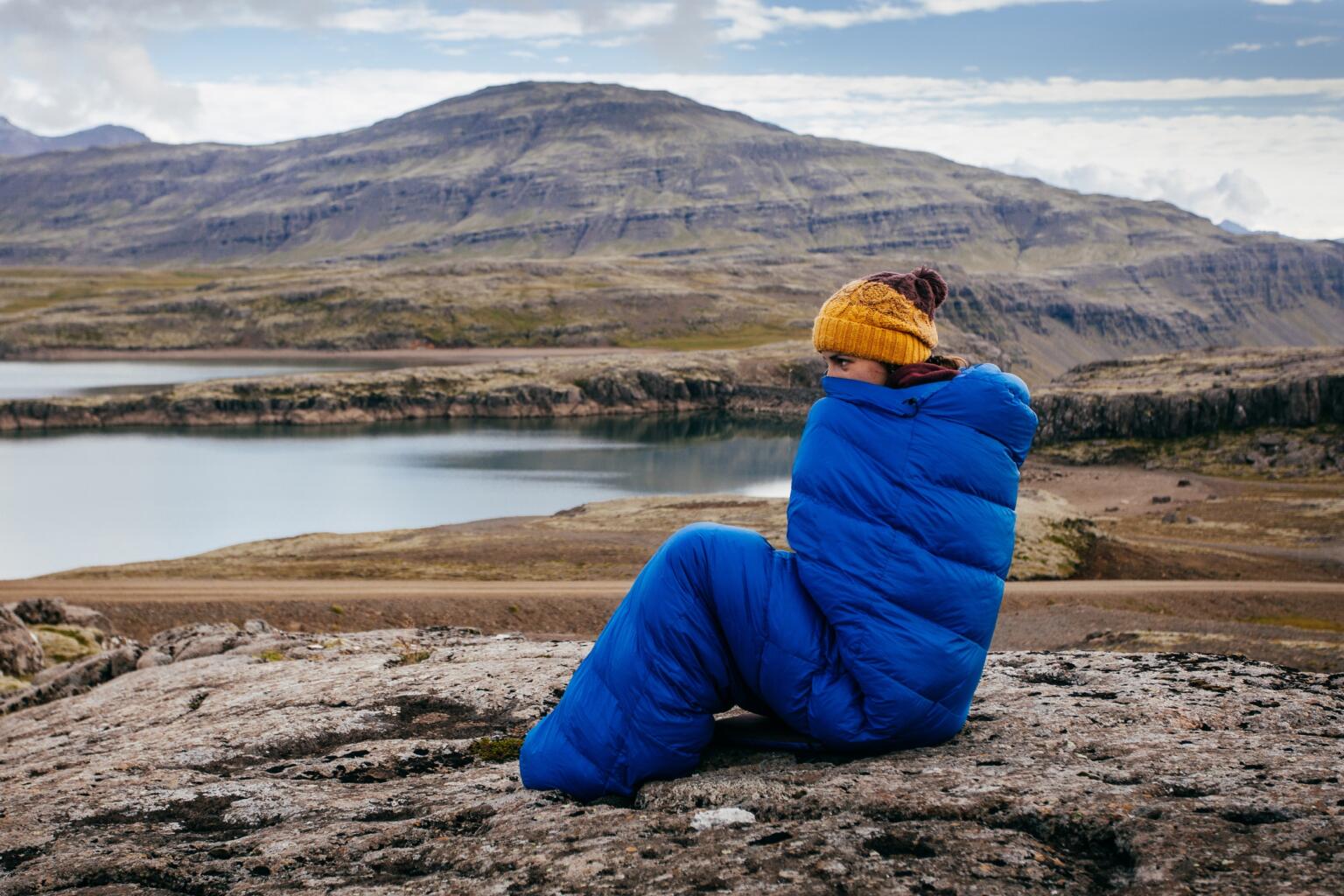
This isn’t advisable or possible everywhere (and regrettably is less safe for women) but it’s a good ace to have up your sleeve.
Another option is to bring your own camping stove so you can cook food outdoors without checking into a hostel – again though, this isn’t always practical and will impact your checked bag weight.
Finally, perhaps the best tip for budget packing I can give you is to invest in the right backpack before your trip. While you can find plenty of cheap backpacks out there, it’s something of a false economy as they don’t last.
I personally subscribe to the old adage that “to buy cheap is to buy twice” and this is never more pertinent than when discussing backpacks. I invested in an Osprey Aether some 12 years ago now and it is still in excellent condition.
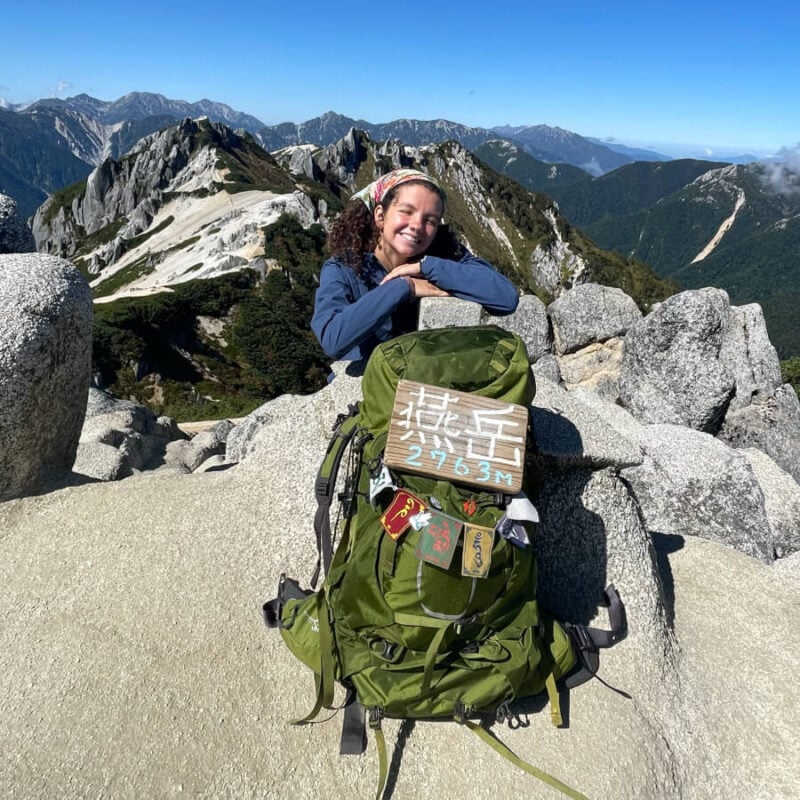
We’ve tested countless backpacks over the years, but there’s one that has always been the best and remains the best buy for adventurers: the broke backpacker-approved Osprey Aether and Ariel series.
Want more deetz on why these packs are so damn perfect? Then read our comprehensive review for the inside scoop!
View on Osprey View on REIGet Insured Before Traveling in Expensive Countries
Last but not least… insuring dat ass.
Accidents may be rare, but they do happen. I could tell you a pretty nasty story on how I almost lost my leg in Costa Rica, but maybe another time…
The point is: expensive countries are expensive. Therefore, medical assistance in said countries = also expensive.
ALWAYS sort out your backpacker insurance before your trip. There’s plenty to choose from in that department, but a good place to start is Safety Wing.
They offer month-to-month payments, no lock-in contracts, and require absolutely no itineraries: that’s the exact kind of insurance long-term travellers and digital nomads need.
SafetyWing is cheap, easy, and admin-free: just sign up lickety-split so you can get back to it!
Click the button below to learn more about SafetyWing’s setup or read our insider review for the full tasty scoop.
Final Thoughts – Cheap Travel in Expensive Countries
So, there you have it, my fellow broke backpackers – my comprehensive guide to traveling cheap in expensive countries!
By learning to budget, tapping into those local networks, and getting creative with your resources, you can still have the adventure of a lifetime without breaking the bank.
So all that is left is to pack your bag, get out there, and explore the world.
Take a big, sexy step out of your comfort zone, and do it all on the cheap 😉

And for transparency’s sake, please know that some of the links in our content are affiliate links. That means that if you book your accommodation, buy your gear, or sort your insurance through our link, we earn a small commission (at no extra cost to you). That said, we only link to the gear we trust and never recommend services we don’t believe are up to scratch. Again, thank you!





